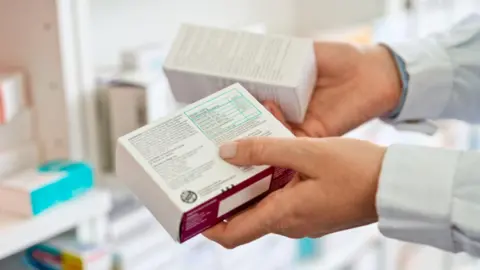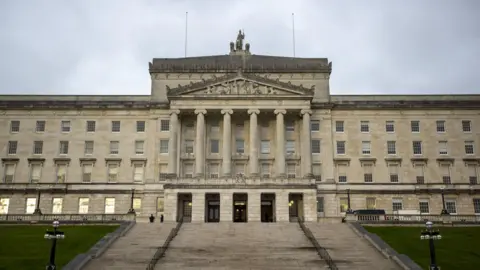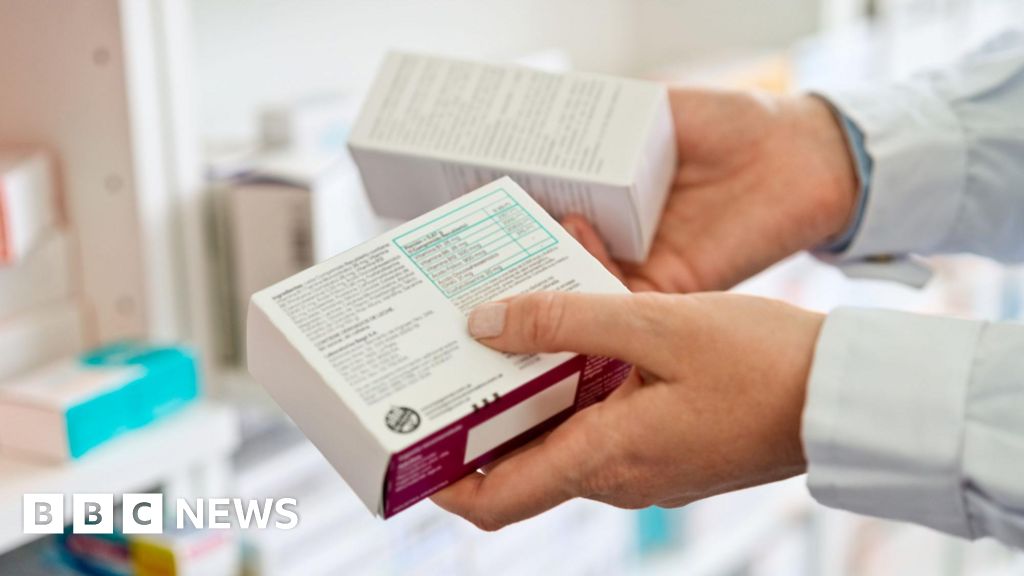 Getty Images
Getty ImagesAs a result of the Windsor Framework, full responsibility for the regulation of medicines in Northern Ireland returned to the UK authorities.
This framework is a post-Brexit trade agreement that effectively covers this. Keeping Northern Ireland within the EU’s single goods market.
From 1 January 2025, the Medicines and Healthcare products Regulatory Agency (MHRA) will be able to approve and authorize human medicines across the UK.
Under the previous Withdrawal Agreement, the EU retained responsibility for regulating medicines in Northern Ireland, but has since admitted that it is effectively commercially unviable.
A major substantive change as a result of the new agreement is that all relevant products sold on the UK market must be labeled ‘UK only’ on their packaging.
This is to ensure the EU that UK-approved medicines sold in Northern Ireland will not be sold in the Republic of Ireland or the wider EU.
a Similar labeling arrangements for GB standard foods Sales in Northern Ireland came into effect in 2023.
Labeling concerns
Some pharmaceutical manufacturers They expressed concern that not all suppliers had labels ready. But the government does not foresee any disruption.
A spokesperson said the move resolved supply issues caused by the Northern Ireland Protocol.
“The Windsor Framework will ensure the long-term stability of medicine supplies to Northern Ireland, ensuring medicines are licensed across the UK and supplied in the same packaging across the UK,” they added.
The supply of medicines from Great Britain to Northern Ireland is one of the most complex post-Brexit issues, and the original agreement reached in 2019 has been amended several times.
windsor framework, agreed in 2023tried to address this issue once and for all.
This included an agreement that would allow manufacturers to produce a single pack of medicines for the whole of the UK, including Northern Ireland.
More elements of the Windsor Framework will be implemented in 2025.
 PA media
PA media
